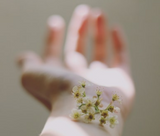The Ultimate Guide To Dealing With Insomnia
Do you have trouble falling asleep or are unable to get peaceful sleep? You're not alone. With about70 millionAmericans dealing with sleep disorders, insomnia is the most prevalent, affecting30%of adults with short-term insomnia. Nearly10%of the people in the US have chronic insomnia.
Lack of adequate sleep makes your nighttime torturous, and you feel lethargic and sleepy throughout the day, making it a challenging task to get through the daytime. It should also be worrisome for you as it can lead to multiple health issueslike obesity, heart diseases, and depression, to name a few.
Treating insomnia as soon as possible is crucial before it starts affecting your personal, professional, and social life. This blog will guide you on how to change your lifestyle and behavior to help sleep better.
1.Optimize Your Bedroom for Better Sleep

Your sleeping environment colossally impacts your quality of sleep. An ideal room temperature for peaceful sleep is between 16 and 18°C (60-65°F) with minimum noise and light interference.
Therefore, you must keep your room cool with quiet fans and air conditioners and block out light with eye masks or blackout blinds.
A comfortable mattress and pillow are also essentials of a good night’s sleep that often go unnoticed. A mattress that’s too hard or too soft or a bed that’s too small is uncomfortable and might wake you up in the middle of the night.
Make sure your bedstead, pillows, and duvets are comfortable to sleep.
2.Go to Bed At the Same Time Every Night
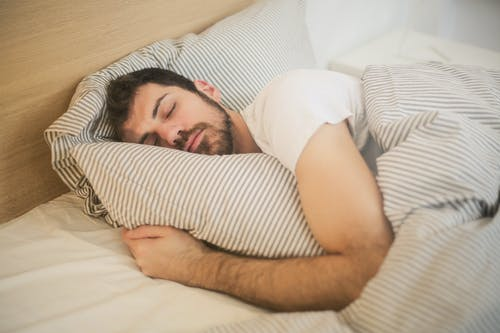
You might often be tempted to sleep late on weekends, but you must not fall into the trap. If you have insomnia, then maintaining a proper sleep schedule is essential for you.
You must go to bed and wake up at the same time regularly, regardless of whether it is a working day or a day off, to train your body to sleep on time.
3.Limit Activities in Bed

Always remember your bed is only for having sex and sleeping. You must not make it your workplace by bringing in laptops and finance reports into your bedroom. Any work-related activity that is the prime cause of your stress should be kept out of your bedroom parameters.
If you work and sleep at the same place, you won't be able to sleep better as your work-life balance would be disrupted. If you want to keep anxieties that keep you awake all night at bay, consider having a separate work and sleeping space.
4.Exercise Regularly

Regular exercising such as walking, swimming, and meditating can help you drain out the stress that has built up over the day. Try exercising at least three to four hours before your bedtime, as vigorous exercise right before can have a stimulant effect on your body, keeping you awake the entire night.
5.Avoid Eating and Drinking Right Before Going to Bed
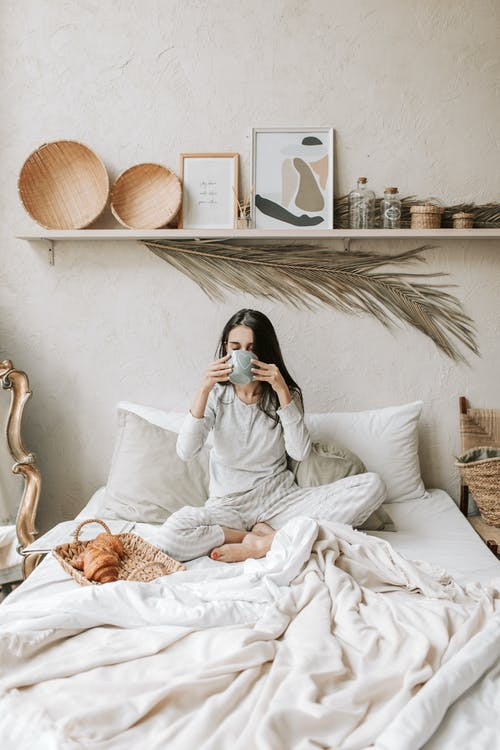
Having a delayed meal or snacking right before you’re heading to sleep can stimulate your digestive system. If you’re dealing with acid reflux issues or heartburns known as gastroesophageal reflux (GERD), you must avoid late dinners or midnight snacking as it can worsen your symptoms.
Additionally, consuming more and more liquids will cause your bladder to overflow, resulting in frequent visits to the washroom that’ll disturb your sleep.
Therefore, ensure that you have your last meal of the day or any drinking session well before your bedtime to avoid any inconveniences while you sleep
6.Avoid Caffeine Intake Before You Sleep

Coffee is a potent beverage that can have a disruptive effect on your sleep. Your body starts showing the maximum impact of caffeine within 30-60 minutes of consumption only as it is quickly absorbed in your small intestines and then circulated throughout your body until it reaches the blood and brain barrier.
There, it blocks your sleep-promoting receptors called adenosine. These receptors are activated while you're awake and make you sleepy. Caffeine prevents the adenosine receptors from making you heavy-eyed, thus, keeping you vigilant and wide-awake.
Not only does caffeine intake makes it difficult for you to sleep, but it also disrupts your circadian melatonin rhythms, interrupting your sleep frequently.
7.Get Smart with Napping
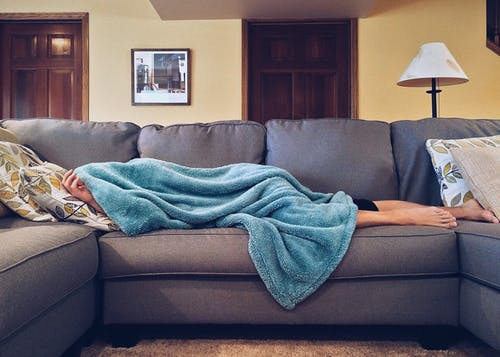
While napping seems to be the best way to catch up on your lost sleep, it can make things worse for you if you are habitual to not getting adequate sleep at night. You must train your body by maintaining a sleep pattern. Limit your naps to 15-20 minutes in the early afternoon and not in the evening.
8.Avoid Sleeping In—Even On Weekends
The more you fluctuate between your sleeping schedules, the more difficult it’ll get difficult for you to develop a healthy sleeping schedule, and it will get even more challenging to have a relaxing and peaceful sleep. Your jetlag-like symptoms will worsen if you don’t get back on track with your sleeping habits.
If you want to catch up on your missed sleep due to late-night partying, consider napping during the daytime rather than sleeping in. That'll help you make up for your lost sleep without disturbing your sleep cycle.
9.Move Stimulating Activities To Earlier In the Day
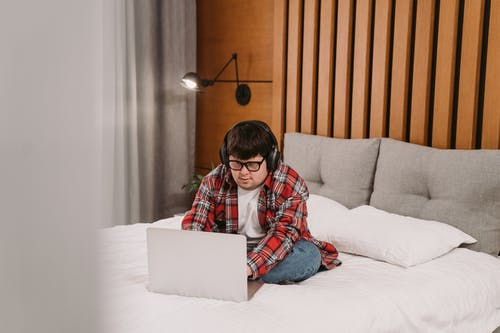
A tranquil state of mind with lower body temperatures, reduced heart rates, and slower breathing helps you sleep better as you are psychologically relaxed.
Any activity that activates your body, taking it away from the vibe and relaxation needed to sleep, like work, exercise, or caffeinated drinks, must be avoided before your sleep.
Schedule these activities earlier in the day so that they don’t disrupt your sleeping habits.
10.Start Your Day With A Healthy Breakfast.

A balanced diet has numerous health benefits that cannot go unnoticed. One of them is assisting in synchronizing your biological clock by letting your body know when it’s time to get going and start functioning. It gives the necessary cue’ that helps tell your body the time of day.
Skipping breakfast will disrupt your blood sugar levels, increase stress, and lower your energy that’ll ultimately make you feel sleepy and heavy-eyed throughout the day.
11.Fight After-Dinner Drowsiness
You might often notice that you get sleepy at odd times. You might feel the need to sleep after having your dinner. As blood is pumped into the gut to fuel digestion, there is a drop in blood flow to your brain, which could trigger your feelings of sleepiness.
If you get sleepy before bedtime, get out of your bed or sofa and do something that diverts your mind. You can do some household chores, call up a friend, chit chat, practice gratifying journaling, or even get your clothes ready for the coming day.
If you fall into the trap and sleep before your time, you might wake up in the middle of the night and then find it challenging to get back to sleep.
12.Get Out Of Bed If You Can’t Sleep

If you have trouble sleeping, you might end up switching sides and lie in bed staring at the ceiling. The last thing you want is to lie there slipping between the sheets and start associating your bed with the anxiety of not being able to fall asleep.
Instead of getting stressed, get up and do something that’ll help you relax and sleep better. Consider taking a warm shower or reading a book but not something that stimulates you, like cleaning your lounge, paying bills, or making yourself a cup of brewing coffee.
13.Wind Down and Clear Your Head

The workplace stress and worry that we carry back to our homes is the main cause of sleepless nights. Effectively managing your stress levels with deep breathing and meditation and learning how to manage anxiety can make it easier for you to unwind at night.
Don’t overwork yourself during the day as it’ll also make it difficult for you to clear your head and give the needful rest to your brain.
14.Practice Deep Breathing to Help You Sleep

Breathing exercises are highly effective in helping you fall asleep fast by relaxing your mind and body.
Keep your back straight and place the tip of your tongue on the upper part of your mouth. Close your mouth and breathe in deeply through your nose. Hold your breath for about 5-10 seconds, and then exhale through your mouth.
15.Reduce Your Screen Time before Sleep
The blue rays from your phones, tablets, computers, TV screens, and all the other devices suppress the sleep-promoting hormone, melatonin, in your body. These harmful rays interfere with the body’s natural sleep-wake cycle.
You must avoid using bright screens at least an hour or two before you sleep to minimize the impact of the rays they emit. The longer you spend on your screen, the greater the challenges it poses for you to sleep.
16.Consider Participating In Cognitive Therapy.
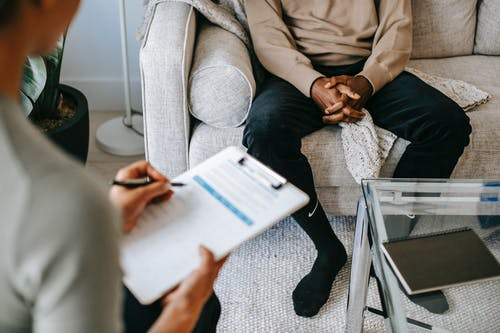
If changing your lifestyle and daily routine isn’t effective enough in treating insomnia, consider participating in cognitive behavioral therapy (CBT).
This counseling session will guide you on sleep norms, how to adopt healthy sleeping habits, help deal with age-related sleep changes, and much more that's disrupting your sleep.
Depending on your needs, your sleep therapist will recommend whether you need stimulus control therapy, sleep restriction, good sleep hygiene, relaxation training, training in staying passively awake, or any other CBT technique.
17.Control Your Exposure to Light
Melatonin is a naturally occurring sleep-promoting hormone that’s controlled by light exposure. It’ll help regulate your sleep-wake cycle. When it’s dark, your brain secretes more of the melatonin, thus making you sleepy. However, in bright light, the melatonin section is suppressed, keeping you wide awake.
Therefore, make sure you make your room dark by switching off all the lights and closing all the blinds when you sleep. On the contrary, you can make your room brighter and lit up to ensure you aren’t feeling sleepy or lethargic.
18.Try Some Non-Habit Forming Sleeping Aids

If all else fails, get non-addictive over-the-counter sleeping aids and watch yourself dozing off on time. They are safe enough to be sold without a prescription, and you can easily find them at Health A2Z. They help promote sleep by relieving tension and anxiety.
If you’re looking for premium sleeping aids that’ll help you get a good night’s sleep, check out our wide range of sleep aid tablets at Health A2Z that’ll help you sleep better.
We offer premium quality OTC (over-the-counter) pharmaceutical and best dietary supplement productsto help treat your allergies and other health conditions. They’re non-addictive and absolutely safe for all adults and kids.
We also help you get rid of your debilitating headaches with our tension headache relief caplets.
Reach out to us to order premium nutritional supplements.





